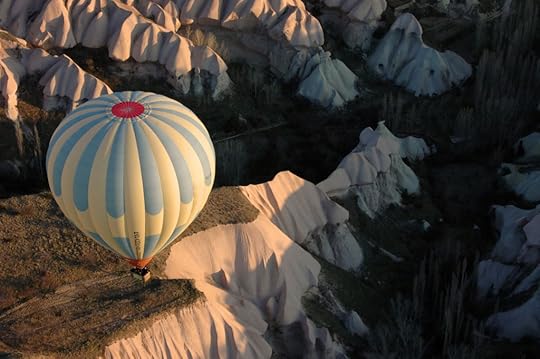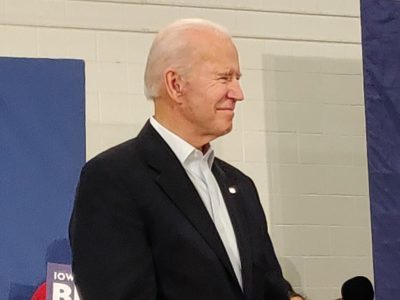Bill Murray's Blog, page 17
December 16, 2020
A Good News Story from Kenya

Elephant Friends, Amboseli National Park
I remember a day back around March, when we knew not much more about the virus than fright. On a walk in the park, I heard the return of birdsong and saw the first signs of coming spring. It made me realize that this may be a bad year for humans, but other life goes on without skipping a beat. It made me jealous of the squirrels.
Now today come holiday wishes via newsletter from the Amboseli Trust for Elephants, in Kenya’s Amboseli National Park, at the foot on Mt. Kilimanjaro. It’s a reminder that life, indeed, does go on, and it’s uplifting enough to share:
In Amboseli the elephants have been doing exceptionally well. High rainfall in the first part of the year provided a rich habitat for them. The Kenya Wildlife Service, Big Life Foundation and the Olgulului game scouts have secured the ecosystem and as a result there has been no poaching of elephants this year. Life has been good for Amboseli’s elephants and for that reason we are thankful and happy. Just to make 2020 even better for the elephants, there has been the most amazing baby boom. The last baby boom was in 2012 when 201 calves were born. A more typical year we might see 50-100 births. The unusual number of births in 2012 was the result of a terrible drought in 2009. Many calves died and the females stopped breeding. When good rains came again, many of the females were available to become pregnant. We thought we would never see anything quite like it again, but this year proved us wrong. There was a drought in 2017 and once again many of the adult females became available the following year. Twenty-two months later in 2020 there has been a record-breaking baby boom. So far this year 226 calves have been born, and we are expecting at least a few more this month. We celebrate all these new little elephants in our Christmas issue with a portfolio of photos. Enjoy!
Cynthia Moss, Director, Amboseli Trust for Elephants
You can subscribe to the Amboseli Trust for Elephants newsletter by filling out this form.
December 15, 2020
And We Really Mean It
Here’s a short video: the Sydney Harbour Tunnel projects a massive stop sign onto a waterfall in front of trucks that are too big to enter.

December 14, 2020
2021 Travel? Not so Fast

The aviation consultancy Simpliflying reaches some fairly downbeat conclusions about the swift resumption of tourism in 2021. It thinks:
1 – It’s likely that there will be some form of air travel recovery from April. Shorter haul leisure routes (e.g from Northern / Western Europe to the Mediterranean) will recover first, especially those catering to older leisure travellers, who are higher in the vaccination queue.
2 – Widespread vaccinations of the adult population in Europe and North America however, won’t occur until after April, and we can’t expect a mass of adults to be vaccinated until the Summer.
3 – In Western Countries, vaccination schedules will not be uniform. In other countries, the roll-out may take until 2022 or 2023. This means testing is here to stay, and will work alongside vaccination certificates and biosafety measures.
4 – Reopening borders for air travel will not be a priority for Governments. Even the introduction of vaccines may not be enough.
You can download the entire report here.
December 12, 2020
Gunboat Boris
The Tory government’s plans to use the Royal Navy to patrol British fishing grounds in the event of a hard Brexit elicited this French response Saturday:
Tongue-in-cheek reaction from the Elysée on plans to deploy Royal navy ships to protect UK fishing waters: "keep calm and carry on," an Elysée official tells me https://t.co/u3pYsijdgM
— Michel Rose (@MichelReuters) December 12, 2020
Recalling this well-thought-out Trump Administration plan, back in April, to “shoot down” ships:

Good government. Good times.
New Book Almost Ready
Happy to tell you Out There: 30 Essays on Travel is perhaps only a week or two away. It’s a 360 page collection of my last thirty monthly columns. Coming Soon!
The Georgia Runoffs
Here is my latest monthly travel column as it ran recently at 3 Quarks Daily:

In this column I write about international travel, especially travel to less understood parts of the world. This month, with such travel still a wee bit constrained, how about a little political tourism from here in Georgia, where unlikely circumstance handed our state the fate of the Senate, and we are shaky stewards.
Beware national pundits bearing wisdom. When they bring instant analysis and self-assurance about, say, Flint’s water supply, or that crazy Sturgis biker thing, be careful. Because all punditry has right now is conventional wisdom. Here on the actual battlefield the candidates compete against one another, the Republican party competes against itself, dark money scurries in the shadows, QAnon jeers from the sidelines and the truth is, nobody has any idea what’s going to happen.
Georgia Democrats’ justified pride in turning the state for Joe Biden comes with a fistful of contradictions. Consider that the Democrats’ two national MVPs this year are black southerners from neighboring states who punched way above their weight, US House Majority Whip Representative Jim Clyburn, Democrat from South Carolina, 80, and former Georgia House Minority Leader Stacey Abrams, 46.
When the primary season began national Democrats looked destined for tag-team fratricide, Sanders and Warren and The Squad on the left, Biden and Klobuchar and Buttigieg glued to the middle. No one had any particular expectations for Joe Biden. He finished 4th in Iowa, 5th in New Hampshire and 2nd, barely, in Nevada. No one was taking charge of the Democrats and the alternative was four more years.
Clyburn took charge. He steadied the party with a ringing endorsement of Biden before his South Carolina home crowd and in a well-meant, astonishing nearly unanimous coalition against Donald Trump, Democratic centrism prevailed. While here in Georgia, Stacey Abrams rejected all that, explicitly.
Before Abrams’ day, Georgia Democrats took the gradual approach to changing red to purple and maybe one day to blue. Before Abrams centrist Democrats, like former Georgia Senator Sam Nunn, showed the (eventual, theoretical) path to – one day – turning blue.
Nunn’s daughter Michelle ran for her father’s seat in 2014. Republican David Perdue, a plug-in, generic businessman who spent a career at companies selling food, household products, jeans, then shoes, then as the CEO of a textile company and a discount chain, defeated Senator Nunn’s daughter. He is standing for reelection.
Abrams, as Minority Leader of the Georgia House, was narrowly defeated in a 2018 race for Governor marked by accusations of voter suppression. She ran against the then Secretary of State, our current Governor Brian Kemp, who effectively presided over his own election.
Stung when denied the Governorship she was convinced she’d won, Abrams torched the centrist playbook and set about registering Georgia voters with unabashed appeals to the left. With help from her New Georgia Project (under investigation by the current Secretary of State), and other groups like Georgia Stand Up, Joe Biden beat Donald Trump by 12,670 votes. Georgia turned blue for the first time since ‘92.
Perhaps Clyburn’s centrism is the only way to victory for Democrats in South Carolina. Probably. But next door in Georgia, where Atlanta’s surging growth suddenly accounts for 57% of the state’s population, Abrams found a new way to move the party forward.
•••••

Many of us relish the idea that Trump’s defeat will send the Republican party spinning into civil war, but could we have things backwards? Last night the President rallied in Valdosta, in south Georgia, calling the Democratic candidates “the two most extreme far left candidates in the history of the country,” who are planning to implement “the most extreme left wing agenda ever conceived.”
That’s a wee bit too much, but a throwaway aside perhaps spoke inadvertent truth: “We don’t go away,” the President said. Maybe Donald Trump never goes away, while the Democrats face their own leadership dilemma.
The incoming president is busy rolling out an assemblage of safe hands. The activist left is wary, displaying a non-Trumpian grace, holding its fire but laying markers. It saw how the Biden campaign stuck to his historically corporatist centrism, lost House seats, and then shaky centrists like Abigail Spanberger and Conor Lamb blamed the left. The farther left counters with position papers (1, 2) in direct opposition to those centrists and condemns the Blinken-Haines-Flournoy consultancy WestExec Advisors as a “revolving door” between government and defense contractors.
What does all this pre-inaugural position-staking mean for crafting a national Democratic message? What do actual people think? It turns out that a majority of Americans subscribe to a broadly center left agenda:
Nationally 63% say the government should provide health care coverage for all. Seventy percent of Republicans support access to paid family and medical leave. (Colorado voters mandated twelve weeks of it.) Sixty percent of Americans support tuition-free public college. Arizona raised taxes on higher incomes for public education. Sixty-four percent of Americans want stricter laws on gun sales.
Nevada voters easily repealed their ban on same-sex marriage. Arizona, New Jersey, Montana and South Dakota approved legalizing marijuana. In Nebraska voters capped payday lending interest. And Florida voters approved a $15 minimum wage by two to one while voting to reelect Donald Trump. Majorities on all these issues are solidly to the left of national Republicans.
Much of the farther left clamors for a liberal mirror of Trump’s populism, a tub-thumping effort to capitalize on poll numbers like those to decrease inequality, get a substantial start on a Green New Deal, and expose tax haven protections for big money, for example.
Jim Clyburn, though, will thump no tubs. Clyburn says if “we are going to run on Medicare for All, defund the police, socialized medicine, we’re not going to win.”
Clyburn, it must be said, has helped craft political changes that Abrams inherits as birthright. The Republican campaign consultant Lee Atwater, instrumental in the George H. W. Bush campaign (born in Atlanta and raised in Aiken, SC) looked back on Clyburn’s formative years this way:
“You start out in 1954 by saying ‘Nigger, nigger, nigger.’ By 1968, you can’t say ‘nigger.’ That hurts you, backfires, so you say stuff like ‘Forced busing, states’ rights,’ and all that stuff, and you’re getting so abstract, now you’re talking about cutting taxes, and all these things you’re talking about are totally economic….”
All credit to Rep. Clyburn, but his acceptance of Republican framing of police violence and health care is a failure of imagination. The Clyburns, Spanbergers and Lambs signal a haplessness against which the more energized left is eager to fight.
It is no less true for appearing in Jacobin magazine that: “Republicans have been using the same playbook against Democrats for decades. … the GOP … has … branded centrist liberals as dangerous extremists regardless (of) the countervailing Democratic narrative….” But, as they write, “no one was subjected to more of these attacks than Barack Obama and he won the presidency twice.”
So the Dems are in a muddle. The incoming president’s great good fortune was that Trump drew Democrats together across their ideological divide, and repelled many Republicans too. Biden’s campaign mission was to not be Trump, and he did it well.
Trouble is, whatever its plans, the incoming administration has “transitional” stamped all over it. Grappling with two big-ox issues, a new aid-for-Americans package and the economic recovery on the one hand, plus crafting an actual Coronavirus response in our country and beyond and helping to vaccinate smaller countries that need American help, those initiatives (and plugging the U.S. back into the world) will take every drop of sweat from 2021.
The great Democratic repositioning battle will play out alongside. I’m just about persuaded that the Dems need Joe Biden’s steady hand for around eighteen months. By which time, with good governance and a break here and there, the pandemic ought to be largely broken, what can and should be put back together of the international status quo ante will have been, and with the approach of the midterms, the new generation of Dems, for better or worse, should be making themselves seen and heard in contrast to whatever post-Trump face the Republicans put on.
The best thing about this worst of years: the world won’t look like Donald Trump’s 2020 much longer. In the week and a half after election day the president laid a wreath on Veterans Day, read a statement so filled with bullshit that TV networks bailed out, declared “leaders of other countries have called me to congratulate us on what we’ve been able to do” to combat the virus and drove by a crowd of supporters on his way to play golf.
During those eleven days his CDC reported 1,489,128 new Coronavirus cases. The president simply did not engage further. He hunkered down, wounded, resentful, the way everyone feels when they get fired.
All jobs require vetting. Only a certain kind of person can become an astronaut, for example, certain personality traits lending themselves to the level-headedness you want to see in someone allowed to drive a space ship.
The president has his hands on a great deal of costly American gear, too. It’s sobering that our president-vetting electorate did such dismal work four years ago. A measure of where it has got us: as a contingency against post-election violence, Facebook planned to deploy “internal tools designed for what it calls ‘at-risk’ countries, previously used in Sri Lanka and Myanmar.”
•••••
Everybody knows twentieth century corporatism can’t reign forever. We can’t burn “our ecological capital as if it were disposable income” forever. In 2010 Tony Judt reckoned that the U.S. was thirty years into its “pursuit of material self-interest,” which he thought constituted all that remained of Americans’ sense of collective purpose.
A decade on, Joe Biden will not stop the cult of the market. He will not even try, because if he tried he would fail. He would fail because 70 million Americans have been taught to disdain their government.
In this the U.S. is peculiar. Judt wrote that “nowhere in Europe is there a constituency for abolishing public health services, ending free or subsidized education, or reducing public provision of transport and other essential services,” as there has been here for dismantling the Affordable Care Act and public education.
To succeed against the anti-government crowd the Democrats need a fresh face. Someone who can build a constituency around a couple of those issues on which the country broadly agrees. Someone who can draw out the poison, hose away the stagnant anger, banish the bad blood and shape national energy around a new consensus.
I don’t think that’s Joe Biden; I don’t think many people do. I don’t think that’s even his role in succeeding Donald Trump. In a year of tumult Americans chose to touch a safe base if only for a moment by electing an aging white man, before jumping off into an inchoate future furiously aborning.
So who will it be? I am grateful for the coming post-Trump quiet, the Biden breather, but I don’t think a reset radical enough to address the pressing concerns we face today will come from a centrist. The Republicans have shown their willingness and ability to put up a (damaging) change agent. Will the Democrats?
•••••
Read more columns in the series.
December 10, 2020
New 3QD Article Today
Check out my monthly column at 3 Quarks Daily. With physical travel still constrained, it’s political tourism from here at home, about the Georgia runoffs. Read it here now, and I’ll post it here on CS&W in a few days.

December 8, 2020
That Settles That
[image error]
They disagreed so they measured it together. It’s 8,848.86 metres (29,031.69 feet), a bit more than their previous calculations, they say.
December 6, 2020
Pass Control
Here is my latest monthly travel column as it ran recently at 3 Quarks Daily:
[image error]
Gangtok, Sikkim
The northern Indian province of Sikkim, between Nepal and Bhutan, borders Tibet. To visit, non-Indians require an “Inner Line Permit/Restricted Area Permit” issued by the Government of Sikkim Tourism Department.
It’s because of history. China chased the Dalai Lama from Lhasa over these mountains and off the throne in ’59. India took in his cadre and donated a whole city, Dharmsala, to their cause. The Chinese have raised hurt feelings to high art, and by this those feelings were gravely wounded.
Besides, the Tibet/Sikkim border isn’t drawn to either sides’ satisfaction. These are barren, forbidding, 12,000 foot mountaintops that nearly 2500 people died fighting over in the 1960s. (The border at Nathula only reopened for trade in 2006.) So they like to keep up with where foreigners are.
The Inner Line Permit is a sheet of legal sized pulpy paper with wood chips. You can get one at the provincial border for free with passport photos and photocopies of things. It cautions that we must not overstay or go beyond the restricted areas, and must register at all check posts. It has us commit to paper what Indian intelligence probably already knows: our arrival point, arrival and departure dates, names, nationalities, and passport information. This form requires a bureaucrat’s stamp. The bureaucrat’s stamp is money.
We hurtle to a stop (driving is purposeful here) outside a building labeled Ministry of Handicraft and Handloom and present ourselves and our papers to two gentlemen inside. We wish to enter Sikkim via Rangpo town.
The presiding official wears a Millet brand down jacket with a tall, zipped-tight collar. He examines our materials for several minutes. First, there will be no small talk. This is official business, too grave a matter for that. Nor, for that matter, will there be any cordiality.
I think he’s demanding respect with his silence. TAKE ME SERIOUSLY. This is his domain and these are his number of minutes and it is not our privilege to question or expedite things in any way. Look here now: I can slow down anybody I want.
But the road to Gangtok spreads before us. He holds our progress in his hands right now and we will – if we won’t do anything else – we will note it. He pulls a ledger to his blotter and begins recording our passport and visa details both on the ledger and on our permit.
The official and his colleague preside across battered metal desks. Facing them, we have the better view. Picture windows at their backs reveal the permanently stirred up frenzy of the street, and on the other side of it, well, Ricki’s Cocktail King.
The Ministry of Handicraft and Handloom is sort of a rambling, half open, ad hoc thing. A clock ticks and a bird causes a ruckus somewhere up in the rafters.
Ultimately our application to enter Sikkim causes no incident (or uttered syllable), and in time, out comes The Stamp. It pounds around a few places, gathers steam on ink pads and at last lands on our new Inner Line Permit. Naive as we are, we imagine we’ll be on our way.
And underway we are, not to Gangtok but under our driver Sunil’s escort, picking our way on foot across a frenzied lane and a half of pocked tarmac on the road to Sikkim, descending a hill toward a bridge and right past Ricki’s Cocktail King. Must say, I cast a longing gaze.
Chaos prevails over here. Over here, besides clerks in interior rooms, other clerks stand in windows open to the street, windows labeled Excise Tax and Forestry Department and more, pay windows for goods carriers inbound to Sikkim where men stand belligerent and flushed and point and holler. Their vehicles are what causes the frenzy.
We stand facing green pastel walls in an office lit by a swinging bulb. Two new gentlemen. The inferior clerk sits at his superior’s side on a rolling office chair that has no back, wielding sheaves of paper, fretting. The boss man sits behind a half window with space for pushing critical documents back and forth beneath the plexiglass.
Letters on his window spell out “C. O. I. Verification Officer.” The C. O. I. Verification Officer takes our papers, examines them with a practiced eye to detail and, alas, frowns. He wears a high-collared parka similar to the gentleman in the Ministry of Handicraft and Handloom, but it is Kappa brand, not Millet.
With all the joy of a cat in a cloudburst, he reaches for a sheaf of papers like his adjutant’s and begins his work. Which consists of copying our same details into his papers, performing a vital verification, no doubt, of the work of his conniving colleague up the hill.
There will be a delay now, for the inferior clerk riffs his stack of papers, shakes his head and speaks. The C. O. I. Verification Officer puts down his pen and gingerly leans back in his chair. It creaks. It is one of those chairs that at a certain point in its trajectory of recline, collapses all at once the rest of the 45 degrees backward. So the Verification Officer is careful, and when his chair settles without capsizing he and his clerk discuss matters for a time. At length, with no small amount of labor, the officer summons himself upright and hands his clerk a stapler.
Officials stride the length of the old office floors, and you can feel their footfalls through your shoes. A small, older gentlemen enters, putters here and there, then heads back and down the darkness of a hallway. His movement leads my eye to a hand-painted sign farther down, the entrance to the Forestry Department. Between us and the sign an open electrical box on the wall sticks wires out into the hallway, where there is just the faintest smell of piss.
On his own schedule, the C. O. I. Verification Officer completes his work and looks none too happy about it. The Stamp comes out and pounds around the C. O. I. desk and onto our papers. And we are free to go. Silently. Gravely.
•••••
Abidjan, Cote d’Ivoire
[image error]
Abidjan, Cote d’Ivoire
Abidjan is thick with thieves, “beaucoups de bandits,” a driver named Simeon warned us, although in French even bandit sounds genteel (“bawn-dee”).
Normally in these arrivals I opt for studied disengagement, burnished internally with bemusement, for here is the pageant of humanity. But not this time. Just now I am not in the mood for touts who surround your car and open your door for a tip, or stand in the street and wave their arms to guide you into your parking space. Today, just run ‘em over. We’ve flown since predawn, stopping in Bamako, and I have been ill since Cape Town.
Here is a new ruse. The local boys use signs with peoples’ names to get access inside the pass control gates, then make like officials who are going to open another pass control lane for you, grab your passports and expedite you through the lines – which really works – with the acquiescence of the real pass control clerks, for tips.
They’re on you tight as a surgical glove, then the baggage cart cadres pile on just outside the pass control desk. These fellows artfully monopolize every last baggage cart and attach themselves to you. I give the pass control expediter a dollar – we have no local money – and he demands ten. “Get lost,” we explain and finally, at unending length, he does.
Been down this routine. We tell the round little man who appoints himself to help at the bag carousel (additional to the goon with the cart), “We do not want your help, we will not pay you, go away.” He smiles and laughs because that is surely a big joke, and doesn’t move. I say the same words slowly and seriously. He shakes his head, for a terrible wrong has been done him, and slowly, eventually, leaves. But he is back, outside at the curb, for one last try. His cousin is a taxi driver, see….
•••••
Havana, Cuba
[image error]
Havana, Cuba
Two open aisles confront Citizens and Residents in the arrivals hall, Miami. We’ve just flown the 43 minutes from Havana, March, 2012, during the brief Obama era flirtation with Cuba, on one of nine flights to Florida listed at Jose Marti Airport the morning of our return. (We arrived at U.S. Passport Control with our enabling paperwork, a sort of license to travel to Cuba, at the ready, anticipating red tape. In the event, the agent didn’t bat an eye, just waved us in. “Welcome back.”)
Everyone hurries to fill the queues that snake around way behind the pass control booths. The lines back up pretty quickly. You learn to hustle off the plane because it’s like airport check-in lines in reverse, if you pick a lane where there’s some indefinable problem, or the agent’s just having a bad day, each person in front of you could mean an extra six, eight, ten minutes. (Pro tip: If there is a choice of stairs or escalator between the plane and pass control, ALWAYS hustle up the stairs. Most people don’t.)
You try to discern how many are in what-sized groups. If those two right there are sisters and they approach the clerk at the same time, it may be quicker than if they go separately.
Have you ever been about eleventh in the queue with two booths open and you see an officious agent stride in, as if to open a third? You can’t move too soon, it might be a feint, but if he means to inaugurate his own little fiefdom in booth three, you aim to jump at just the instant to lead the flow to his booth, as soon as he opens, circumventing the ten in front of you. Timing is everything.
You can see the guy now. He’s deliberate, balding enough that he went ahead and shaved his head, sanctimonious maybe a little, with a good posture (they’re all erect and upstanding), young, unhurried, air of authority, intent on Representing Our Country Correctly.
He’ll open his briefcase. He’ll shuffle and arrange his papers. You can’t quite see all the fiddling he’s doing inside the panels surrounding his booth, but you figure he’s turning on his computer. At least, he faces the screen. You’re ninth in line now. You guess his computer has to have a little time to boot up. Maybe you get to talking with the sari-clad woman in front of you. She thinks the guy’s pretty good-looking, you guess, but that’s not what you talk about. You conspire to be the first in his line when he opens.
You read his facial expressions. Is he a helpful kind of guy? Will he hurry to accommodate? Now you’re eighth to the front and you’ve already been here fifteen minutes. Your bags are spinning around on the carousel out there by now. Nah, you decide he’s not going to be your savior. He’s being very deliberate, doing things you can’t see behind the plexiglass. You can still attribute his movements behind his counter to his follow-the-procedures work ethic, if you’re being kind.
You don’t know, maybe he’s getting out his own personal-issue passport stamp and inking it. Whatever he’s doing, he’s doing it behind that glass so you can’t be sure. Now three people move up in a group and now you’re fifth. You’ve had this guy in your sights to save you some time for seven minutes now and you might only have seven to go, but he can still save you those seven.
Fatalistic humor now with the lady in front of you. In another person or so, you’ll have to do a kind of blocking maneuver with your body to both keep your option to go to the new guy’s aisle and keep the people behind you from edging around you. Now you’re fourth. When you’re about third it won’t really matter if he ever opens or not.
He never lifts his eyes outside his booth, like every bartender you’ve ever disdained. You and the woman joke that he’s just back there playing video games, or that his lunch break doesn’t end for four more minutes and he’s not going to go back to work a minute before that.
He turns on the light behind his little sign. He’s ready to go and here is the big crush. Everybody’s been plotting just like you and people crowd into his queue and now you’d be fourth to the front with him – if you go right now – and you’re second where you are. So you stay put. Some guy behind you saves ten minutes.
November 26, 2020
Vaccine Tourism
“Be among the first to get Corona vaccine.” A Mumbai travel agency plans to fly “VVIP clients” to New York on 11 December for the vaccine and four hotel nights, for about USD$2369.



